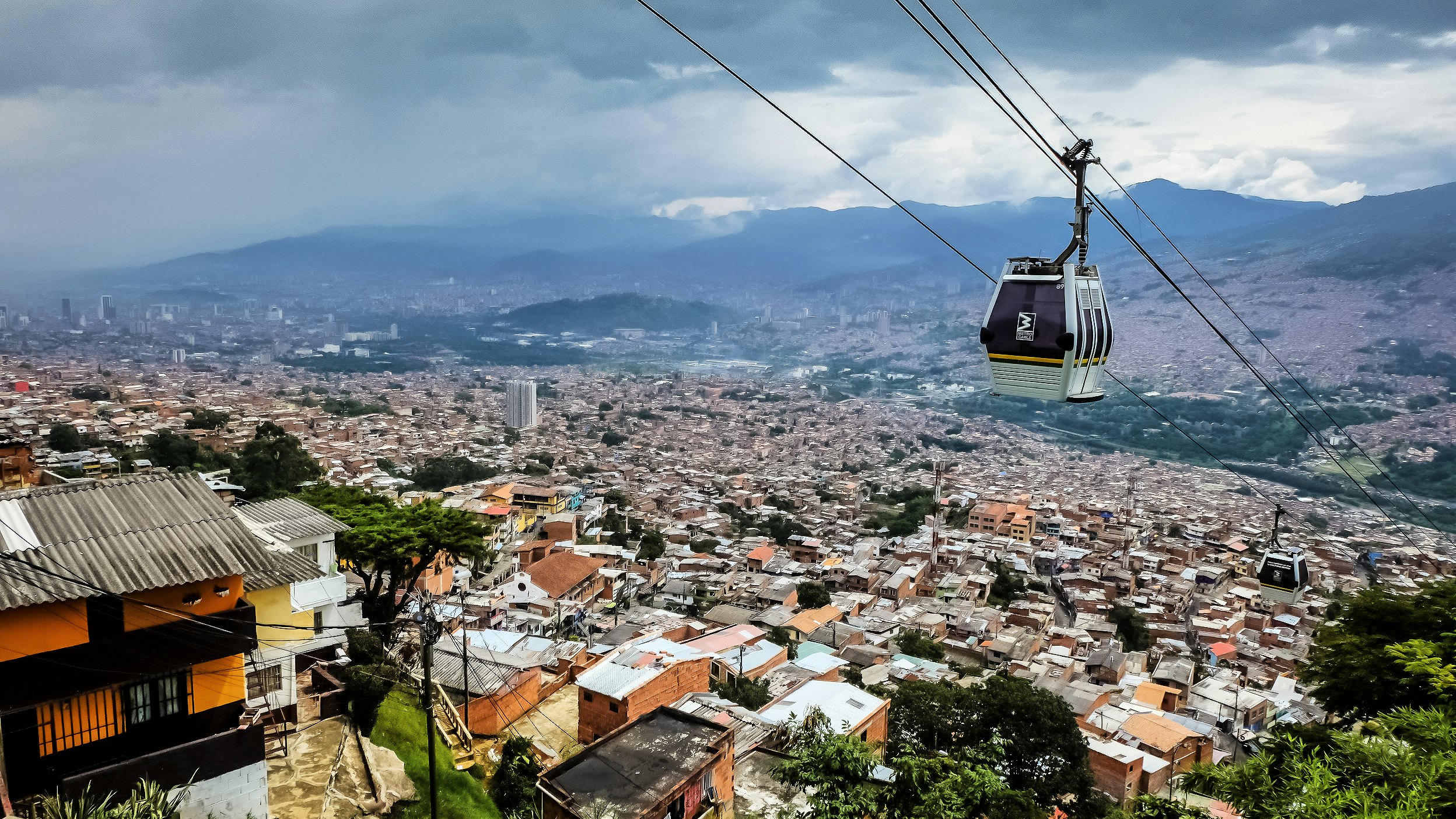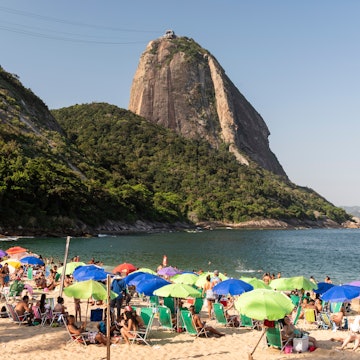
Medellín or Bogotá: which Colombian city is for you?



What’ll it be: Medellín’s friendly vibes, or Bogotá’s sophisticated scene? © iStock; Shutterstock
International visitors are finally catching on to Colombia.
You could spend years exploring its mountain valleys and sprawling beaches, taking vigorous hikes and thrilling road trips, savoring a zesty culture born of its Afro-Caribbean, Indigenous and Spanish communities.
And then there are its cities – dynamic centers of business, magnets for the arts and examples of urban regeneration looked to by planners around the world. Among Colombia’s urban areas, Medellín and Bogotá stand out. But what if you had to choose just one to visit? We asked two Colombia-based contributors to…go to town on arguing for their pick.
There’s no place like Medellín
Alex Egerton is a journalist based in the rural Zona Cafetera, south of Medellín – but travels to the city regularly for a bit of big-town action, like watching a game of football or getting something fancy to eat.
If you plan on visiting just one city on your Colombia trip, it has to be Medellín.
There’s no other city like it – not just in the country, but around the globe. Medellín’s transformation from the troubled epicenter of a narco empire to a modern, innovative metropolis is nothing short of remarkable. But there’s so much more to the city than just a reformed image and a new sense of security.
Only a fraction the size of Bogotá, Medellín punches well above its weight. It’s a friendlier and more fun city than the capital – and way easier to get around, too.

Located at the bottom of a steep valley, the city is surrounded by imposing mountains, making it feel like a lost magical realm cut off from the world beyond. As you cross the cusp of the ridge on the drive in from the airport, the bucolic mountain scenery suddenly gives way to gleaming modern towers running along the valley floor, while colorful neighborhoods defy the gradient and spread up the mountainsides like an enormous mosaic.
Medellín is fetching during the day and even more so in the evening, when the twinkling lights of the city reach upward toward the night sky. It’s a panorama that instantly enamors, invoking a desire to get to know the city in greater detail.
Fortunately, Medellín is home to Colombia’s most gregarious and outgoing residents, the paisas, who welcome visitors with open arms. Paisas love their city – and want to be sure that every traveler does, too. This means you’re sure to make a bunch of new friends in no time at all. In Bogotá, by contrast, everyone is rushing madly and always too busy to even give you the time of day.
Unlike their often bashful brethren in the capital, residents of Medellín don’t shy away from the city’s tumultuous past. It’s an integral part of their story, one that they are more than willing to share in order to show just how far their hometown has come.
Visitors can take a trip to La Comuna 13, once off limits due to the presence of violent armed groups, to hear firsthand accounts of how the neighborhoods have changed, and to check out the vibrant urban art and music scenes at the forefront of the renewal. Medellín also has the best museum in the country dedicated to the armed conflict, the Museo Casa de la Memoria, which portrays the upheaval through the words of those who have lived through it.
And then there’s the weather, Medellín’s perpetually pleasant weather has earned it the nickname of the City of Eternal Spring. Bogotá, on the other hand, with its usual cold and gray weather? It’s known to many Colombians as “the freezer.”

Medellín’s agreeable climate makes it a joy to explore the many outdoor attractions around town – like Plaza Botero, which showcases the larger-than-life bronze sculptures of local icon Fernando Botero, or the peaceful Jardín Botánico, a verdant oasis in the middle of the city.
The mild afternoons are also perfect for just taking it easy and enjoying a cup of locally grown gourmet coffee at an outside table at one of the hip cafes in the leafy Provenza district.
There’s a lot to see – and it’s easy to get from attraction to attraction. With the only metro system in the country and integrated cable cars that climb up the mountainsides, getting around Medellín is a breeze. Which means instead of spending hours stuck in traffic wearing a snow jacket in Bogotá, you could be enjoying the stellar dining scene, buzzing nightlife and cosmopolitan atmosphere of Colombia’s most entertaining city.
Join team Bogotá
Manuel Rueda is a freelance journalist based in Colombia who has traveled across and written extensively about the country. A Bogotá resident since 2015, he likes to start his mornings with a strong coffee and a hike up the city’s hills.
Bogotá may not have Medellin’s balmy weather. But there’s no other city in Colombia that packs so much of the country’s character, its natural beauty and its history within such a small radius. So let me tell you about Colombia’s underrated capital.
Do you like outdoor activities? You can start your day early with a hike along one of the trails that cross the cerros orientales, the emerald-green mountains that loom over the skyline. One of the most popular options is Quebrada La Vieja, a three-mile (5km) trail that starts just a short walk away from the financial district and will take you through a cloud forest with towering pine trees and sweeping views of the city. If you’re staying closer to downtown, climb Cerro de Monserrate, where you can finish your hike with a hearty breakfast of fruit juice, arepas and chorizos at one of the many food stands near the funicular stop at the top.

Take the teleférico back down the mountain and walk to the nearby neighborhood of La Candelaria for a taste of Colombia’s history. The narrow streets here are lined by two-story buildings with clay roof tiles and large wooden windows that have changed little since the 18th century. You will be hard pressed to find something similar in Medellin, where most architecture from Colombia’s early days has been replaced with concrete towers.
But Bogotá’s historic district isn’t just about appreciating the past. Some of the city’s colonial-era buildings now house trendy coffee shops, hostels and reggaeton-thumping bars frequented by college students. And others have been turned into museums.
The stately Casa de Moneda, for example, houses the nation’s largest coin collection. Adjacent to it is a museum with more than 100 paintings by Colombian artist Fernando Botero, famous for depicting people in large, colorful and exaggerated form. Entrance to both places is free of charge.
If you want something edgier, take a graffiti tour of the city center, where you will see how the facades of some of the old buildings in La Candelaria have been covered by colorful murals that depict modern-day political and environmental themes. Or go back in time with a visit to the Museo del Oro, which is home to more than 30,000 stunning works in gold, all crafted by Indigenous Colombian artists before the arrival of Europeans.
When you’re hungry, check out La Perserverancia market in the neighborhood of La Macarena to sample typical dishes from different parts of Colombia. If you want something more worldly, the same neighborhood has a smattering of cozy restaurants serving European, Asian and Latin American cuisines.
At night, the city’s bars and clubs blast out all kinds of rhythms, with some specializing in genres like salsa, vallenato or rock en español.
But the one place you don’t want to miss out on is Andres Carne de Res, a restaurant teeming with kitschy decor, whose dining room turns into a sensational dance party as the night progresses. Colombians enjoy this place so much that the owners had to open a branch in – yes – Medellín for those who can’t travel to the capital.

Bogotá also came up with the Sunday ciclovia, a weekly ritual in which the city’s main avenues are shut down and turned over to cyclists and walkers. You also won’t want to miss the colorful weekend market in charming Usaquén.
The weather in Bogotá can get cold and gray sometimes, keeping sun-seeking visitors away. Yet those who come here will find a city that has substance – and also knows how to party. The city is akin to a friend with whom you can have a fascinating conversation over coffee, and then dance and sing with late into the night.















